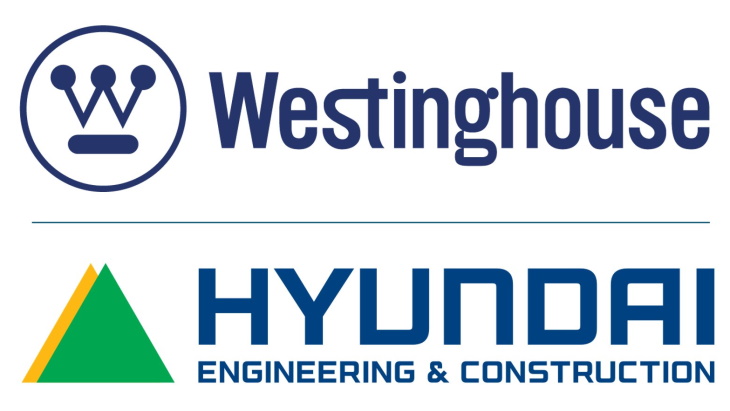The next steps for Horizon

"Hitachi haven’t withdrawn entirely but we have suspended our projects at Wylfa and Oldbury and very unfortunately this will trigger a large-scale redundancy programme," a spokesman for Horizon told World Nuclear News. "Next week we will begin a formal consultation process with our 380 staff and the current expectation is there will only be a small number of people left at Horizon at the end of the process. As with our staff, we are now in conversations with our supply chain with a view to bringing their work to an orderly end."
The staff who are retained will be involved with maintaining the sites at Wylfa and Oldbury, community engagement around the sites, and continuing the discussions with the government on a potential new funding model for the project.
The spokesman noted the "tremendous amount of progress at Wylfa". He said: "We completed the GDA [Generic Design Assessment] for our tried and tested technology at the end of 2017; our main planning application was submitted in June and was being assessed; the site licence application was being actively considered by the Office for Nuclear Regulation; we were progressing all our other permissions and permits; and we had made major strides to establish a supply chain, including bringing in Bechtel; the Horizon organisation was still growing, with further recruitment under way; and site development work was progressing - we’d done the ground work, environmental studies, archaeological works, boreholes, and we’d received planning permission for site preparation and clearance. Wylfa Newydd remains one of the best sites in Europe for nuclear new build but the funding and financing also needs to be in place and that, unfortunately, is the bit we haven’t managed to bring to a successful conclusion."
It is understood that Hitachi has spent between GBP1.5 billion (USD1.9 billion) and GBP2.0 billion (USD2.6 billion) on Horizon since it acquired it in 2012, while the overall Wylfa project cost was expected to have been about GBP15 billion.
The UK government is currently considering a new funding model for nuclear, with the focus on the Regulated Asset Base (RAB) model. It is hoped that this would go some way to addressing some of the difficulties experienced in funding nuclear new build projects, where there is a long lag on return on investment throughout the construction period and before the units are operational. An RAB model would allow investors to start making a pre-determined return as they invested, but any new policy would require primary legislation and the whole process of developing and then enacting a new policy would likely take a minimum of 18 months.
Greg Clark, secretary of state for Business, Energy and Industrial Strategy, told Parliament yesterday that Hitachi had "made clear that while it is suspending project development at this stage, it wishes to continue discussions with the government on bringing forward new nuclear projects at both Wylfa and Oldbury and it intends to work closely with the company in the weeks and months ahead”. Hitachi President and CEO Toshiaki Higashihara told reporters yesterday that Hitachi could seek to withdraw completely from the project and sell the Horizon unit, depending on discussions with the British government, according to Reuters.
Significant impact
Duncan Hawthorne, CEO of Horizon Nuclear Power said yesterday that Hitachi’s decision will have a significant impact for all involved with the project.
"We will look to minimise this as much as possible as we move into this next phase and we will begin consultation on the implications immediately with our staff who have shown extraordinary talent, resilience and determination to take this complex and exciting project to this stage," he said. "We will also engage closely with the many international and UK-based stakeholders who have strongly supported the project’s development, especially our lead host community of Anglesey in Wales, represented by the Isle of Anglesey County Council and Welsh Government, and the key representatives around Oldbury."
Agneta Rising, director general of World Nuclear Association, said Hitachi's announcement was "sad news for the people who had worked so hard on Wylfa Newydd and those who were planning their careers there". She added: "It also presents major questions for the credibility of the UK's plans for electricity decarbonisation."
Tom Greatrex, chief executive of the UK Nuclear Industry Association, said the Horizon project would provide 60 years of reliable, secure, low-carbon power for homes, businesses and public services - with a strike price much below any offshore wind project generating power now and cost competitive with all low carbon generation. "It is imperative that new nuclear at this site goes ahead and the barriers to that are removed," he said.
Justin Bowden, national secretary for energy at the GMB trade union, noted that the planned reactor at Wylfa is not the 'first of a kind' and this fact - combined with a government stake - would ensure Wylfa was built at a cost much lower than Hinkley Point C.
"The government must act and step in now, pick up the reins and take whatever funding stake and leadership is necessary, to ensure Wylfa goes ahead on time. The NDA (Nuclear Decommissioning Authority) has the nuclear expertise and could be immediately re-designated to do this," he said.
The ABWR design was developed jointly by GE, Hitachi and Toshiba, prior to the merger of GE and Hitachi, and is derived from GE's BWR concept. Four units - Kashiwazaki-Kariwa units 6 and 7, Hamaoka 5 and Shika 2 - have been built and operated commercially in Japan. ABWRs are now offered in slightly different versions by GE-Hitachi, Hitachi-GE and Toshiba. The UK ABWR successfully completed the GDA process with UK regulators in December 2017.
Supply chain
Jenifer Baxter, head of engineering at the Institution of Mechanical Engineers, said the Wylfa plant would provide around 6% of UK electricity demand.
"The reduction in nuclear power in the UK is a loss to our ability to decarbonise rapidly. This decision to pause development of one of our major nuclear energy sites combined with the decision to leave Euratom as part of Brexit will damage the long-term outlook for the nuclear manufacturing supply chain in the UK."
Matt Burley, chairman of Nuclear South West - a partnership of industry, academic and public sector - said he was confident a solution can be found for new nuclear development at the Wylfa and Oldbury sites.
"In the South West, the nuclear industry remains buoyant, with strong progress in Hinkley Point C, Magnox and the defence nuclear estate," he said.
Nuclear South West noted that EDF Energy and China General Nuclear's Hinkley Point C project will create 25,000 job opportunities, 1000 apprenticeships and will contribute GBP100 million a year to the regional economy.
_59102.jpg)
_49833.jpg)







_88592.jpg)
_66488.jpg)

